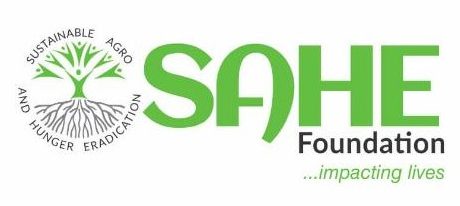A TWIN-TRACK APPROACH TO INCLUSIVE HUNGER REDUCTION
The key issue in achieving inclusive food security and poverty reduction is how to bring about in a readily affordable manner an adequate consumption of an appropriate amount and variety of food amongst all those members of the population who are, sometimes unknowingly, regularly living on a diet which does not allow them to lead a full, healthy and productive life. A comprehensive programme to enable people to achieve full food security must move simultaneously on the twin tracks of bringing about sustainable long-term improvements in the livelihoods of poor people (including small-scale farmers) and of expanding the access of vulnerable people to a sufficient, varied and safe supply of food. This strategic approach is clearly enunciated in several FAO documents, including the Anti-Hunger Programme. It is also being promoted by the International Alliance Against Hunger, founded by FAO, IFAD (International Fund for Agricultural Development), WFP (World Food Programme), IPGRI (International Plant Genetic Resources Institute) and some international NGOs (Non-governmental organizations).
A higher level of food security opens the door for rapid progress in poverty reduction. It also contributes to better health, better learning, greater gender equality and a more sustainable management of natural resources, including biodiversity. There is need to create opportunities for food insecure people to attain sustainable improvements in their livelihoods wherever this is feasible. Most hungry people in developing countries live in rural areas and depend directly or indirectly on farming for their livelihoods, and it has long been recognised that improvements in the performance of small-scale farming can play a critical role in raising both farm production and food consumption, thereby contributing to both better household and national food security.
It has been observed too that urban and peri-urban agriculture offer for food-insecure city dwellers. Not all solutions lie in agriculture hence food security programmes must offer incentives and training, including literacy education, for people suffering from hunger and malnutrition to engage in employment in other sectors.
If the World Food Summit goal is to be met, safety nets of various kinds must also be put in place to enable people who are unable to meet their food needs either through increased production or through purchases to bring their consumption to adequate levels. Food-related safety nets are required, as part of a broader social security programme, not only for the old, the disabled and the indigent, but also for infants and schoolchildren (especially orphans), for pregnant and lactating mothers as well as for the unemployed.
Adjustments in macro-economic policy, especially policies affecting income and asset distribution including access to land, are a prerequisite for success in cutting the incidence of hunger. By translating food needs into effective demand, programmes which expand food access can also stimulate growth in production through expanding markets. Similarly, when safety nets are conditional on beneficiary participation in educational programmes, whether formal (e.g. school feeding for children attending primary schools) or informal (adult literacy, skills training, farmers’ field schools, community learning groups etc), they open new opportunities in life for those who participate.
For example, a school feeding programme based on local purchases can expand markets for poor farmers in the community and surrounding areas and, at the same time, improve the health, learning abilities and eventual employability of children, some of whom might otherwise not attend school. The effectiveness of such synergy will be greatest if programmes under each track are taken up simultaneously within the same communities.
The challenge is how to translate the persuasive concept of a twin-track approach to inclusive hunger reduction into large-scale but affordable programmes which can be adopted by the very low-income countries in which the incidence of food insecurity is high, markets are narrow, institutions are generally weak and fiscal resources – whether domestic or provided by donors – are horribly scarce.
ERADICATING HUNGER –FAO
[https://www.fao.org/3/ae523e/ae523e06.htm]

